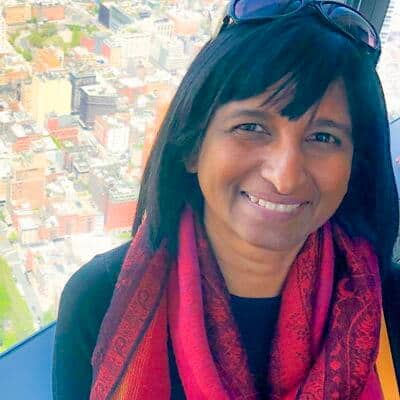Speaker
-
 Nomali Perera
Nomali Perera
At this session, we’ll be exploring the skill of Inter-Stage Dialogue—learning how to “translate” messages across developmental stages in ways that are healthy, inclusive, and strategic. From an Integral lens, this is about developing the capacity to meet value systems where they are without sacrificing depth or integrity.
Why this matters:
-
Tier 1 stages often experience their worldview as the only valid one, and can become reactive or defensive.
-
Tier 2 consciousness can hold multiple perspectives at once, and carries the responsibility (and opportunity) to communicate with compassion and nuance.
-
Translation is not manipulation—it’s empathic attunement that can lead to action.
Before our next discussion on August 14th
Please watch Imagine Our Preferred Future (Ester Perel, futurist Amy Webb and innovation expert Frederik Pferdt). As you watch, notice:
- What are the dominant structure-stages that are in this dialogue/debate?
- What was your own experience (triggers, insights, desires, questions, etc) watching/listening to them?
- If you were a part of this panel, what would you add to it from an integrative and synthesizing altitude and attitude as a practice in “Translation?”
- What is YOUR “Preferred Future” for each of the Four Quadrants as taught in Integral Theory?
- What is the struggle and gift of the integral stage to enact that preferred future for yourself and/or larger collective?
Past Sessions
July 24
Extreme postmodernity—often associated with cancel culture, moral purity tests, rigid language policing, and an emphasis on identity over strategy—has at times alienated the very people it aims to persuade. This well-meaning but often heavy-handed mode of communication is what Spiral Dynamics refers to as “Mean Green,” where the shadow side of inclusion becomes exclusionary, and moral outrage substitutes for political effectiveness.
In this session, we’ll take a closer look at how Sarah McBride—Delaware State Senator and one of the most prominent openly trans politicians in the U.S.—navigates this terrain. In a recent interview on The Ezra Klein Show, she reflects with clarity and humility on how the Left’s approach to trans rights has, at times, backfired. She names the need for more effective persuasion, broader coalition-building, and a recommitment to meeting people where they are.
Rather than doubling down on purity or polarization, McBride models a Tier 2 orientation: self-reflective, strategically inclusive, and willing to engage complexity—all core capacities for healthy Inter-Stage Translation.
It’s okay if you or we don’t agree with everything she says. What we’re celebrating is the emergence of integral-like skills in the political sphere. While the video focuses on trans issues, the broader question we’ll explore is this:
How might the political Left be encouraged to critically assess where it has become extreme, unskillful—and, in some cases, unjust or insensitive—and begin to communicate in ways that are both principled and effective?
Supplemental Material
Surprisingly, many (even among the integral community) are still unaware of what’s referred to as “Wokism.” These dynamics, often, but now always, show up as an extreme version of postmodernism. Here’s a video without any references to developmental theories or integral theories (and whatnot!) that will introduce to you what is Wokism.
July 10
How to translate to the traditional worldview (How the Left Lost the Working Class, with Joan C. Williams)

